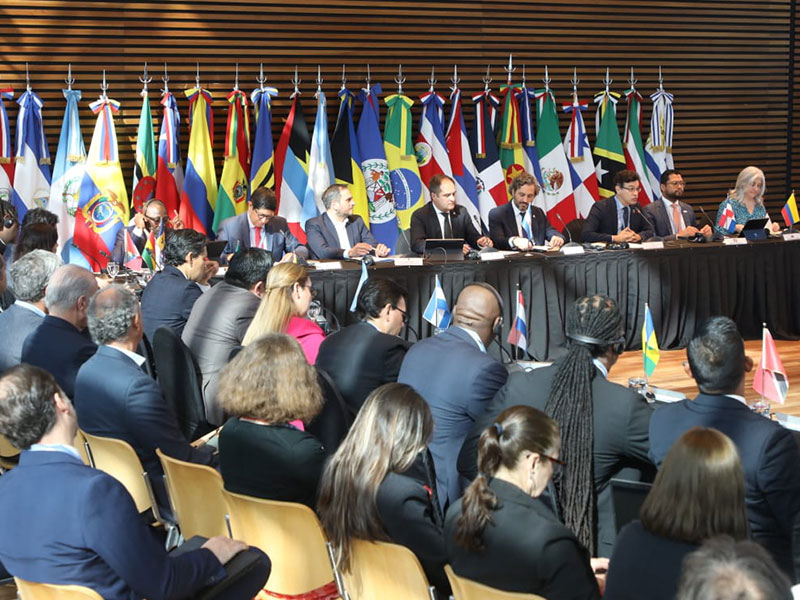MINURVI 2023
On April 10th and 11th, The Forum of Ministers and Highest Authorities of Housing and Urbanism of Latin America and the Caribbean (MINURVI) held the Ministerial Meeting “Financing for Climate Change Mitigation in Urban Settlements” in Buenos Aires, Argentina. The event was led by the presidency of Minurvi, headed by Santiago Maggiotti, Minister of Territorial Development and Habitat of Argentina.
The meeting was attended by 28 member countries and with the representation of CEPAL and UN-Habitat in their role as Technical Secretariat of Minurvi. The objective of the meeting was to discuss possible strategies to create a regional financing fund that contributes to the incremental costs of projects and programs with significant impact on increasing resilience to climate change.
Along with the event welcome, several presentations were held by panelists and experts in the topic. This included the National Secretary of Urban and Metropolitan Development of Brazil, the Secretary of Agrarian, Territorial, and Urban Development of Mexico, and the Specialist of the Housing and the Urban Development Division of the Inter-American Development Bank.
One of the prominent panelists was Nicolás Maggio, President and Executive Director of the WWB Foundation, who gave a presentation on “Sustainable Housing Improvement in Latin America and the Caribbean for Fair Housing and Climate Change Mitigation.” The presentation focused on the innovative and effective solutions that the WWB Foundation has implemented to address the housing deficit in the region.

During his presentation, Nicolás Maggio explained how the WWB Foundation has developed sustainable housing projects that not only reduce environmental impact but also improve people’s quality of life. One of these projects is the Weatherization program, which has managed to promote sustainable and fair housing in several countries in the region.
The participation of the WWB Foundation in this important MINURVI event demonstrates the organization’s commitment to sustainable development and the importance of collaboration among the different actors involved to address the challenges of climate change and the housing deficit in Latin America and the Caribbean.

The experiences of the event also included internal debates on how climate change affects the housing sector, especially the most vulnerable communities and what are the main barriers to move from when it comes to fair housing. Furthermore, the attendants enjoyed a visit to the territory of El Barrio Azul in the Avellaneda district, a perfect example of the integral work housing policies need.
Lastly, a speech held by the President of the Argentine Republic, Alberto Fernandez, brought closure to this relevant and significant event.




